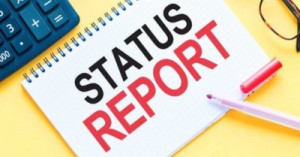From next year, employees will be able to access 10 days of paid family and domestic violence leave in a 12-month period. This includes casual and part-time employees.
The new entitlement will be available from:
- 1 February 2023, for employees of non-small business employers (employers with 15 or more employees on 1 February 2023)
- 1 August 2023, for employees of small business employers (employers with less than 15 employees on 1 February 2023).
Taking Family And Domestic Violence Leave
Employees (including part-time and casual employees) can take paid family and domestic violence leave if they need to do something to deal with the impact of family and domestic violence and it’s not practical for them to do so during their work hours.
This could include, for example, the employee:
- making arrangements for their safety, or the safety of a close relative (including relocation)
- attending court hearings
- accessing police services
- attending counselling
- attending appointments with medical, financial or legal professionals.
Meaning Of Family And Domestic Violence
Under the new provisions, family and domestic violence mean violent, threatening or other abusive behaviour by an employee’s close relative, a current or former intimate partner, or a member of their household that both:
- seeks to coerce or control the employee
- causes them harm or fear.
A close relative is:
- spouse or former spouse
- de facto partner or former de facto partner
- child
- parent
- grandparent
- grandchild
- sibling
- a child, parent, grandparent, grandchild or sibling of an employee’s current or former spouse or de facto partner, or
- a person related to the employee according to Aboriginal or Torres Strait Islander kinship rules.
Notice and Evidence Requirements
If an employee takes paid family and domestic violence leave, they have to let their employer know as soon as possible. This could be after the leave has started. An employer can ask their employee for evidence to show that the employee needs to do something to deal with family and domestic violence and it’s not practical to do that outside their hours of work.
An employer can only use this information to satisfy themselves that the employee is entitled to family and domestic violence leave, unless:
- the employee consents
- the employer is required to deal with the information by law, or
- it’s necessary to protect the life, health or safety of the employee or another person.
The employer can't use the information for other purposes, including taking adverse action against the employee.
All other rules about notice and evidence are the same as the current rules for taking unpaid family and domestic violence leave.
For more information: New Paid Family And Domestic Violence Leave







 Regulatory authorities across Australia have identified staffing as a priority area, with a strong focus on ensuring educators hold valid, authentic qualifications. Unfortunately, fraudulent certificates
Regulatory authorities across Australia have identified staffing as a priority area, with a strong focus on ensuring educators hold valid, authentic qualifications. Unfortunately, fraudulent certificates